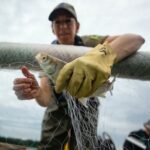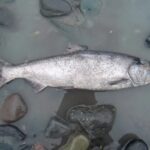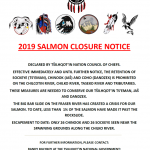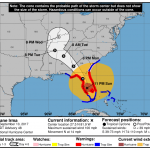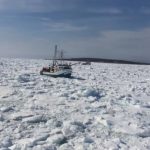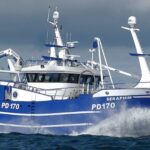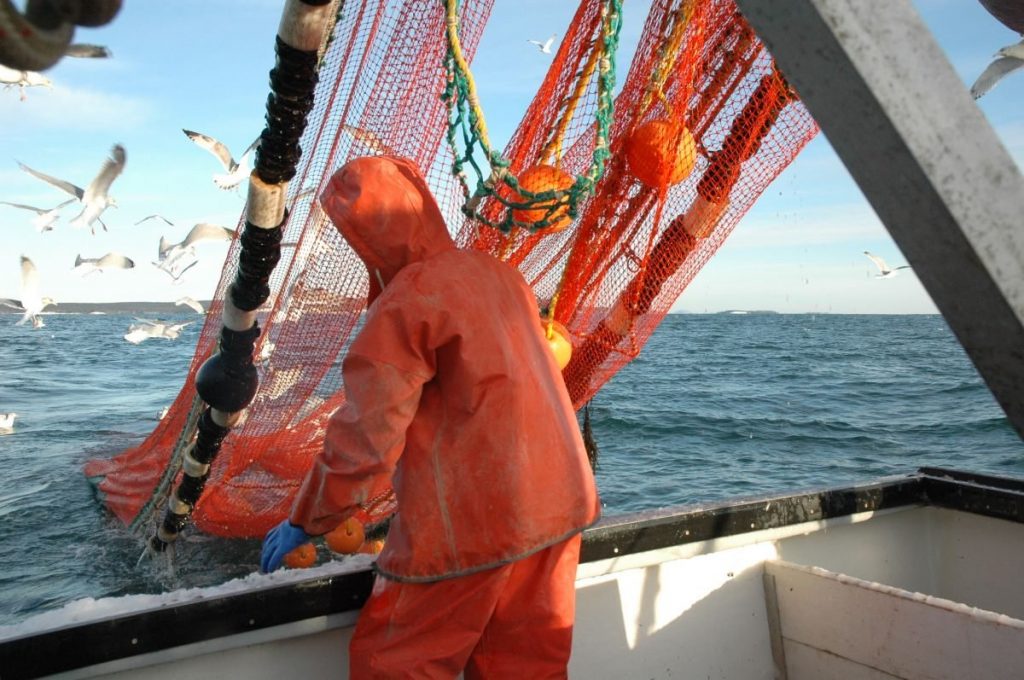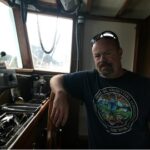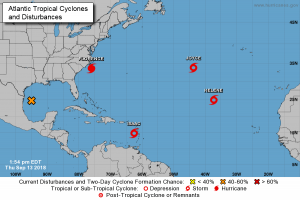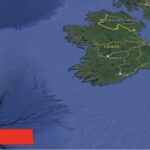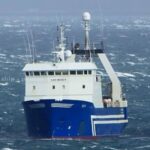Category Archives: Pacific
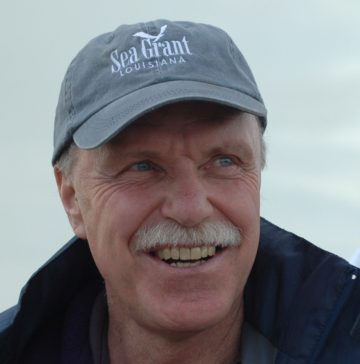
Fisheries in Focus: Busting misconceptions about bottom trawling and its environmental impacts
In a new review paper published in the ICES Journal of Marine Science, researchers argue that well-managed bottom trawling produces sustainable and environmentally friendly food. A review paper is a roundup of all the latest info on a topic – a deep dive into a pool of research papers to pull out the most important aspects. In this case, Hilborn et al., 2023 went over all recent research on the environmental impacts of bottom trawling and boiled them down to four major impacts: Sustainability of target species, Impact on the seafloor, Bycatch and discards, Carbon emissions. The review also compared bottom-trawled seafood to other forms of food production. It concluded that well-managed bottom trawling can produce food with less environmental impact than chicken or pork production. Good, effective management is the key. >click to read< 11:44
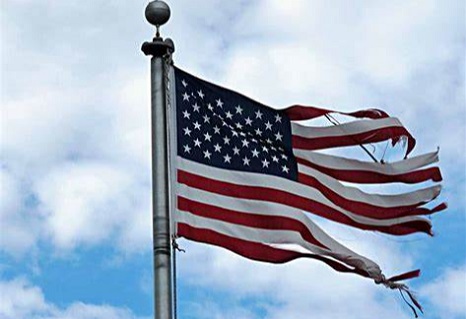
OFFSHORE WIND OPPONENTS NEED A MASS PROTEST IN WASHINGTON DC – BY JIM LOVGREN
In 2010 and 2012 fishermen held two different successful protests in Washington DC with thousands of fishermen travelling from around the country to attend. Both commercial and recreational fishermen voiced their concerns regarding catch shares and Magnuson Act reauthorization, among the multitude of issues that threatened their livelihoods. Today, the fishing industry is facing a far worse enemy then fishery management, as thousands of square miles of their historic fishing grounds have been auctioned off to the highest bidder in order to make way for the wildlife killing machines called wind turbines. These auctions have been held by BOEM, the Bureau of Ocean Energy Management, a part of the Department of the Interior. They are charged with the selling or leasing of US natural resources in our offshore waters, and apparently, they have absolutely no regard for any wildlife that may exist within them, or any people who might derive a living from catching said wildlife. >click to read< 11:50
Research groups sound alarm after three whales reportedly struck by ships off West Coast
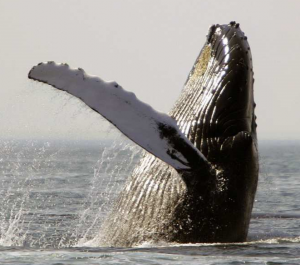 Three whales were reportedly struck by vessels in northern B.C. waters over a 10-day period last month, raising West Coast humpback researchers’ concerns over the risk shipping poses to the marine mammals. The first report involved a BC Ferries vessel, the Northern Expedition, colliding with a whale in Wright Sound near Kitimat on July 20, Fisheries and Oceans Canada (DFO) confirmed. A second incident on July 21 involved a boat that transports workers to Alcan’s Rio Tinto power generation facility in Kitimat. And a cruise ship struck a whale in Hecate Strait between Haida Gwaii and the B.C. mainland on July 29, DFO said. Shipping traffic and humpback whale populations are both on the rise, often in the same areas, escalating the risk of vessel strikes to humpbacks, the greatest threat to the species of special concern along with entanglements in fishing gear.>click to read< 17:46
Three whales were reportedly struck by vessels in northern B.C. waters over a 10-day period last month, raising West Coast humpback researchers’ concerns over the risk shipping poses to the marine mammals. The first report involved a BC Ferries vessel, the Northern Expedition, colliding with a whale in Wright Sound near Kitimat on July 20, Fisheries and Oceans Canada (DFO) confirmed. A second incident on July 21 involved a boat that transports workers to Alcan’s Rio Tinto power generation facility in Kitimat. And a cruise ship struck a whale in Hecate Strait between Haida Gwaii and the B.C. mainland on July 29, DFO said. Shipping traffic and humpback whale populations are both on the rise, often in the same areas, escalating the risk of vessel strikes to humpbacks, the greatest threat to the species of special concern along with entanglements in fishing gear.>click to read< 17:46
Oregon imposes new limits on Dungeness crab fishermen to protect whales
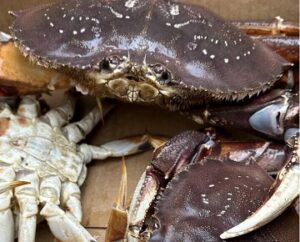 After a lengthy debate, the Oregon Department of Fish and Wildlife Commission voted late on Friday to extend and add on new rules limiting how the state’s Dungeness crab fisherman are allowed to fish, in an effort to protect whales from getting caught in their traps for the next two years. The crustaceans are native to the Pacific Northwest and are one of Oregon’s most profitable products, raking in more than $91 million for the state’s fisherman in the 2021-2022 season. The commission, however, passed a number of regulations in 2020, in response to concerns that migrating whale populations off the coast of Oregon were getting caught in ropes and traps known as crab pots set up by crab fishers and becoming injured or exhausted to the point that they could drown. >click to read< 09:44
After a lengthy debate, the Oregon Department of Fish and Wildlife Commission voted late on Friday to extend and add on new rules limiting how the state’s Dungeness crab fisherman are allowed to fish, in an effort to protect whales from getting caught in their traps for the next two years. The crustaceans are native to the Pacific Northwest and are one of Oregon’s most profitable products, raking in more than $91 million for the state’s fisherman in the 2021-2022 season. The commission, however, passed a number of regulations in 2020, in response to concerns that migrating whale populations off the coast of Oregon were getting caught in ropes and traps known as crab pots set up by crab fishers and becoming injured or exhausted to the point that they could drown. >click to read< 09:44
Donalds introduces bill, The FISHES Act, to help fisheries recover faster from disasters like Hurricane Ian
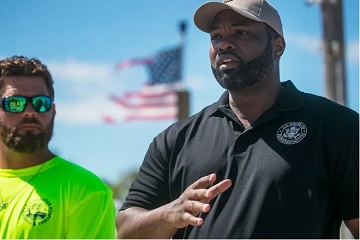 Crabbers, shrimpers and net fishermen all took it on the chin after Hurricane Ian, with some completely out of business, and others struggling to rebuild storefronts, docks and boats. Painfully scarce: government aid dollars, despite a federal disaster declaration. Reviews, red tape and pending inspections make for a long, dragged-out process that takes years to work – if it does at all, says commercial fishing Captain Casey Streeter. The bipartisan legislation spearheaded by Naples Republican Congressman Byron Donalds would “improve the federal regulatory process associated with the allocation of fishery disaster relief (and) expedite the distribution of federal disaster relief following official fishery disasters.” This isn’t just a Florida problem. Nationwide, there are 27 such disaster declarations. “It could be salmon or cod … situations where fisheries are in trouble,” Streeter said, though he’s careful to add the legislation would be a hand-up – “just to get things stabilized – not a hand-out.” >click to read< 07:53
Crabbers, shrimpers and net fishermen all took it on the chin after Hurricane Ian, with some completely out of business, and others struggling to rebuild storefronts, docks and boats. Painfully scarce: government aid dollars, despite a federal disaster declaration. Reviews, red tape and pending inspections make for a long, dragged-out process that takes years to work – if it does at all, says commercial fishing Captain Casey Streeter. The bipartisan legislation spearheaded by Naples Republican Congressman Byron Donalds would “improve the federal regulatory process associated with the allocation of fishery disaster relief (and) expedite the distribution of federal disaster relief following official fishery disasters.” This isn’t just a Florida problem. Nationwide, there are 27 such disaster declarations. “It could be salmon or cod … situations where fisheries are in trouble,” Streeter said, though he’s careful to add the legislation would be a hand-up – “just to get things stabilized – not a hand-out.” >click to read< 07:53
Oregon crabbers and environmentalists are at odds as a commission votes on rules to protect whales
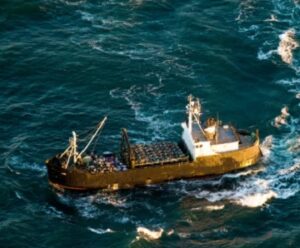 In the wheelhouse of a crab boat named Heidi Sue, Mike Pettis watched the gray whale surface and shoot water through its blowhole. Tangled around its tail was a polypropylene rope used to pull up crab traps. That was in 2004, off the waters of Waldport, Oregon. Pettis, a crab fisherman, said it’s the only time in his 44 years of fishing he has ever seen a whale caught in crab lines, and he believes that is proof such encounters are “extremely rare.” The Oregon Fish and Wildlife Commission is expected to vote Friday on whether to permanently set stricter rules and pot limits put in place in 2020 to protect whales. The restrictions, which were originally supposed to end after this season, would reduce the number of traps, known as pots, and how deep they can drop in the spring and summer months when humpbacks are more likely to encounter them. >click to read< 09:01
In the wheelhouse of a crab boat named Heidi Sue, Mike Pettis watched the gray whale surface and shoot water through its blowhole. Tangled around its tail was a polypropylene rope used to pull up crab traps. That was in 2004, off the waters of Waldport, Oregon. Pettis, a crab fisherman, said it’s the only time in his 44 years of fishing he has ever seen a whale caught in crab lines, and he believes that is proof such encounters are “extremely rare.” The Oregon Fish and Wildlife Commission is expected to vote Friday on whether to permanently set stricter rules and pot limits put in place in 2020 to protect whales. The restrictions, which were originally supposed to end after this season, would reduce the number of traps, known as pots, and how deep they can drop in the spring and summer months when humpbacks are more likely to encounter them. >click to read< 09:01
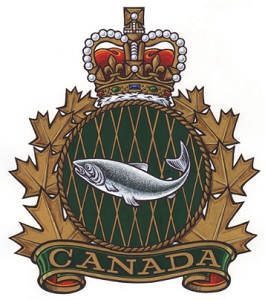
Scientists Level New Critiques of Fisheries and Oceans Canada’s Scientific Rigor
Twenty-five years ago, after the collapse of the Atlantic cod fishery, Jeffrey Hutchings, a preeminent fisheries scientist and professor at Dalhousie University in Nova Scotia, sounded the alarm that Canada’s federal fisheries department was allowing “nonscience influences” in critical decision-making. Writing at the time, he said, “There is a clear and immediate need for Canadians to examine very seriously the role of bureaucrats and politicians in the management of Canada’s natural resources.” Today, a new crop of researchers is once again imploring Fisheries and Oceans Canada (DFO) to change its ways. At the core of their concerns is a number of systemic and structural ways in which DFO gathers, parses, and handles scientific information, and how that advice is passed on to decision-makers. >click to read< 09:20
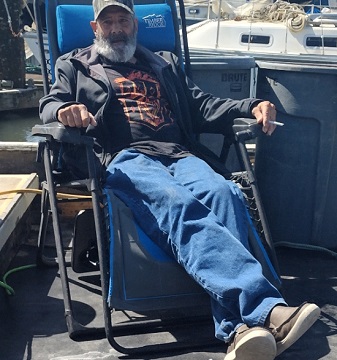
Well known commercial fisherman Richard Alan Burns of Eureka, California, has passed away
It is with great sadness that we have to announce the passing of Richard Alan Burns (67) on June 6, 2023. He passed away peacefully, just as he wished, while watching TV and resting in bed at his daughter’s home in El Centro. Alan was born in Eureka on December 11, 1955 to Richard and Carmen Burns. Graduating from high school, he decided to join the forestry service as a firefighter. However, as much as he enjoyed his time on the road, he returned to Eureka with the passing of his mother. For the next 30 years he worked as a commercial fisherman on various boats in Eureka and Coos Bay. For many of those years he worked beside his two brothers Kenny and David. Among his peers, he was affectionately known as “Big Al”. He will forever live on in the hearts of the fishing community as a delightful jester who’s quick wit and hilarious commentary brought laughter among the crew. >click to read< 17:05
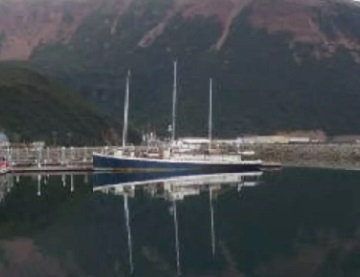
Historic schooner to salmon tender: the Aleutian Express sails on 100 years of history
This summer, an unusual looking salmon tender is anchored in the Naknek-Kvichak District. The Aleutian Express is a historic, 3–masted schooner that came sailing up from Washington State for the Bristol Bay sockeye season. With three masts and filled sails, this iconic vessel has been instrumental in many chapters of Alaskan history. Owner John Clutter first laid eyes on the boat in Chignik waters in 1993. He’s captained the vessel across Alaska and the Pacific Northwest for the last eighteen years, and he says it’s become recognizable in many ports and across many generations. Clutter says in 1912, the boat’s history started off with a bang. “The first operation, I guess they couldn’t get the boat out of gear and they crashed into the bridge. And I think that dent is still in the bow,” Clutter said. >click to read< More photos and info about >Alutian Express < 14:38
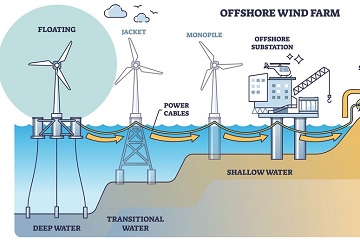
Humboldt Bay – Port of Entry
Big changes are afoot on the Samoa Peninsula. The Humboldt Bay Harbor, Recreation and Conservation District is planning to construct a large manufacturing center to craft and assemble giant wind turbines suitable for the deep offshore waters of the Pacific Coast. Officially known as the Humboldt Bay Offshore Wind Heavy Lift Multipurpose Marine Terminal Project, the port development is a crucial step to bring plans to build a first-of-its kind wind farm off the Pacific Coast to fruition. It would also position Humboldt’s as the only port on the West Coast built to manufacture and repair the turbines — a potential economic boon for the area as the industry enters a period of unprecedented growth. In an effort to address the climate crisis, the Biden administration issued an executive order about a year ago requiring 30 gigawatts of energy to be produced by offshore winds by 2030. >click to read< 10:04
Athearn Marine Agency Boat of the Week: 38′ Young Brothers Tuna/Charter, Caterpillar 3126
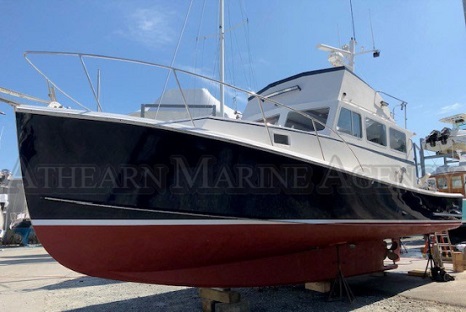 To review specifications, information, and 34 photos’, >click here<, To see all the boats in this series >click here< 11:45
To review specifications, information, and 34 photos’, >click here<, To see all the boats in this series >click here< 11:45
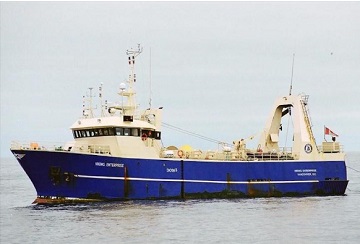
‘Reckless’: Richmond fishing firm fined $755K for ammonia release
A Richmond-based fishing company has been fined $755,000 related to the handling and discharge of ammonia in 2017, a Vancouver Provincial Court judge ruled July 19. Judge Ellen Gordon heard earlier the ammonia was taken from the Viking Enterprise trawler, stored on the Reagle wharf and then transported to the company operations near Jacombs Road and Cambie Road. The events took place Oct. 15, 2017 to Nov. 24, 2017, starting with the removal of ammonia from the trawler as its refrigeration systems were being worked on. It was stored in a tank on the dock. It was determined the ammonia was contaminated and the company received an $819,000 quote for disposing of it. The company decided to look at other options. This is quite a story! >click to read< 20:27
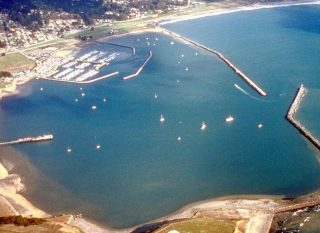
Fishermen ask Harbor District to gut slip fees
At a public meeting hosted by the San Mateo County Harbor District on Thursday, many fishermen and stakeholders at Pillar Point Harbor pleaded with staff not to increase berthing rates while local business remained at a standstill. In late June, the Harbor Commission voted to increase most of its rates and fees by 5.6 percent to keep up with inflation, except for slip and berthing rates for commercial fishers. At the time, some commissioners suggested a discount should be given to owners of commercial vessels who lost money due to shortened crab and canceled salmon seasons. Capt. William Smith, who goes by “Capt. Smitty,” said boats should be getting a reduction in their rent as many operators are losing between 50 to 70 percent of their income due to the loss of salmon season. >click to read< 10:35
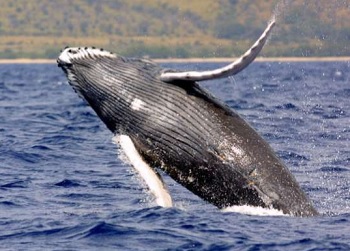
Federal fisheries service agrees to deal aimed at curbing whale entanglements in fishing gear
A legal agreement finalized Tuesday over the protection of humpback whales is expected to help the threatened animals thrive while maintaining the ocean’s health. The deal stricken between the National Marine Fisheries Service and Center for Biological Diversity will create a team to reduce the number of whales that get tangled in a West Coast federal fishery. The service will form the team by Oct. 31, 2025, a press release stated. A federal court in March sided with the center after it filed suit last year against the fisheries service. The center argued the service failed to protect Pacific humpback whales from getting entangled in sablefish pot gear off the California, Oregon and Washington coasts. >click to read< 09:33
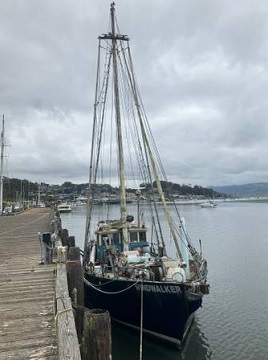
City to Sell F/V Windwalker
The Morro Bay Harbor Department was slated to auction off a local fishing boat after the owner fell behind on slip payments to the department. Harbor Director Ted Schiafone told Estero Bay News that the F/V Windwalker, a federal registered vessel, was seized by the City last year and is set for auction at 2 p.m. Thursday, July 13 at the Harbor Office. Windwalker has been sitting at the North T-Pier with stickers on the window of the wheelhouse indicating it had been seized by the U.S. Marshal’s Service. According to the auction website, Windwalker is a schooner-hulled steel vessel, built in 1984. It’s 64-feet long and 18.5’ wide and has a steel hull. She’s rigged to fish using traps or pots or troll lines, long lines of baited hooks that trail in the water behind the boat. >click to read< 07:39

Hoyle Introduces Supporting Commercial Fishing Act
A release from Hoyle’s office said current law does not make it explicitly clear whether ports can apply for Port Infrastructure Development Program grants that support commercial fishing. Hoyle said that often leaves it up for interpretation that can overlook commercial fishing communities which are the backbone of the coastal communities. The release said Hoyle’s legislation would clarify that ports may apply for federal funding through the Maritime Administration’s PIDP for port infrastructure projects which support commercial fishing and all the jobs that comes with it. >click to read< 12:32
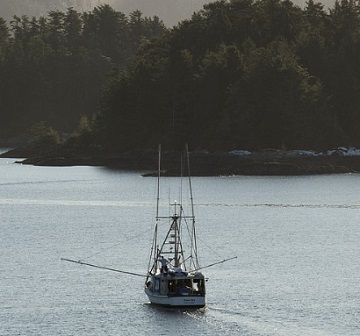
Fishermen fear future fishery management, delisting in SE Alaska
Chinook fishermen are celebrating the start of the 2023 summer troll season in Southeast Alaska after months of lawsuits and uncertainty blocked the fishery. Since the fishery opened two weeks ago, fishermen, some based in Bellingham, have been out in droves, keeping the $85 million industry afloat for another season. But the celebration, some say, may be premature. Fishermen across the region are keeping a close eye on the final decision in the lawsuit, anticipated later this year, and they expect more legal challenges next year. “I’m worried this is going to happen again and again and again and again,” Whatcom resident and fisherman Michael Jackson said from the deck of his fishing vessel in Alaskan waters. “To have this [fishery] turned into a political argument, and shut down people’s livelihoods, it makes me sick. It makes me absolutely sick.” >click to read< 11:51

Retired Commercial Fisherman Bernard J. Mattera of San Pedro, California, has passed away
It is with heavy hearts to announce the peaceful passing of our beloved Father. Bernard J. Mattera, born and raised in San Pedro, California, on July 17, 1933, passed away on July 3, 2023, surrounded by his loving family, just 14 days short of his 90th birthday. Benny was a retired Commercial Fisherman of 55 years. He was a proud owner of several fishing boats, including bait and tuna boats. He was most proud of FV Pioneer, which he captained and engineered alongside his son John. Dad enjoyed his family immensely, especially his great-grandchildren. Benny was a prayerful man and would pray up to 15 complete Rosaries a day for his family and whoever had a request and need. >click to read< 10:32
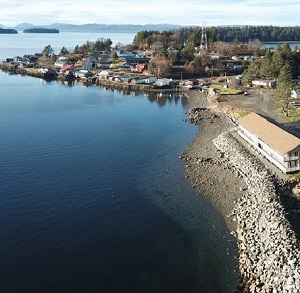
The Alaskan Mass Murder Thats Remained Unsolved For More Than 30 Years
In 1982, the F/V Investor, a commercial fishing boat, was set ablaze on an island near Craig, a remote fishing village in Southeast Alaska. The charred remains of eight people were later found onboard: The boat’s owner, Mark Coulthurst, his pregnant wife, Irene, their two young children, and four deckhands; all shot and killed before the boat was burned. By 1984, John Kenneth Peel, a boatyard worker, was arrested for the crime, but later acquitted. Speaking with People in 2017, David McNeill, a former Washington state police detective involved in the investigation, said this is less an indication of innocence than a prosecutorial failure to present sufficient evidence against Peel. >click to read< 09:10
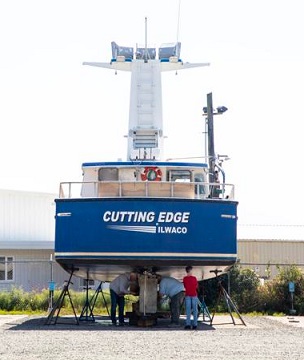
Boat work: Do it right or risk ‘big ol’ can of worms’
Under a high July sun, shipwright Rachel Kuhn sanded the mahogany hull of a 1967 Chris-Craft next to Westport commercial fisherman Chris Cain, who was busy re-painting the bottom of his 46-foot Gulf Craft ahead of the albacore tuna season, now only days away. Nearby, Brian Cutting worked to replace the propeller on his 50-foot vessel, the F/V Cutting Edge, a necessary step before the commercial fisherman can return to sea to catch halibut. It was a typical early-summer day in one of Washington’s busiest boatyards, one of the few remaining year-round haul-out facilities on the Washington coast that cater to hundreds of commercial and recreational boaters each year. 13 photos, >click to read< 17:55
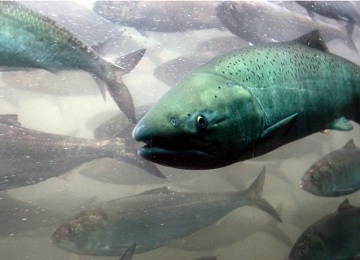
What Happened to California’s Salmon Season This Year?
This spring, fisheries’ managers closed the commercial and recreational salmon season off the coast of California, owing to cratering fish populations, for the first time since 2009. Every one of the few fish left from the generation of Chinook salmon currently swimming in the ocean are needed to return to their natal streams and spawn, managers decided. On the Capitol steps, Bates, Jackson-Reed and other tribal leaders and environmental activists charged that officials, and the Newsom administration in particular, are failing the people and species that benefit from the Sacramento River system by appeasing wealthy farms and other big water users. >click to read< 10:31
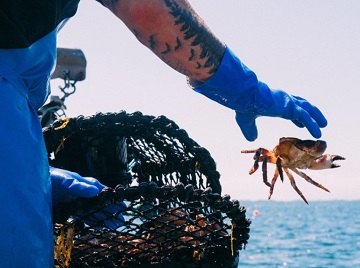
Pacific Seafood Controls the Dungeness Crab Market, but Small Fishermen Are Fighting Back
After a blockbuster 2022 crabbing season that saw an on-time, December 1 start date and record prices for fishermen, this year’s crab season didn’t kick off until mid-January after three regulatory delays. When the season did begin, crabbers were offered as little as $2 per pound for their catch, a price that left many struggling to pay staff and buy fuel and bait. Those conditions have squeezed the small businesses that make up the West Coast crabbing industry and act as the backbone for small towns up and down the shoreline. But this year appears to have brought boom times for one company in particular—Pacific Seafood. >click to read< 07:40
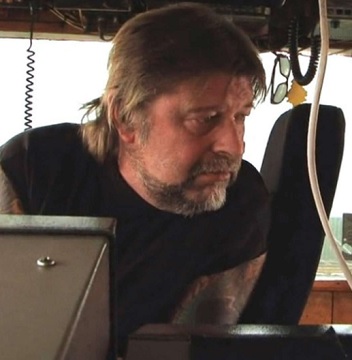
Deadliest Catch: Some Fans Believe Captain Phil’s Tragic Death Was the Show’s Turning Point
Discovery’s “Deadliest Catch” may have 19 seasons and counting under its belt, but some fans believe the show experiences a major turning point in Season 6, which aired in 2010. From the series premiere in 2005, audiences always get to know a bit about the captains and deckhands, but never anything too personal. Largely, it’s all about the dangers of the Bering Sea and filling the pots. That drastically changes in the last few episodes of Season 6, when F/V Cornelia Marie Captain Phil Harris’ emotional last days are chronicled for the world to see. After suffering a stroke off-camera, Harris awakens from a medically induced coma. As shown on “Deadliest Catch,” he’s able to spend some time with his sons — Jake and Josh Harris — before passing away on February 9, 2010. >click to read< 17:21
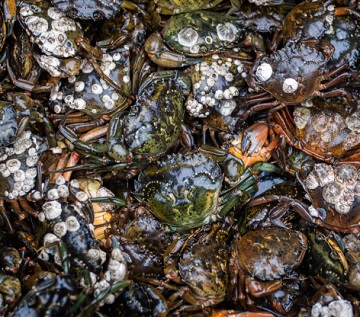
Crab ice cream, anyone? How we might be able to eat our way out of an invasive green crab problem
They’re tiny and they’re wreaking havoc on our coasts, but they also taste pretty good. European green crabs have posed a problem off the coast of Vancouver Island for decades now, and while current conservation efforts have focused on deep freezing them and throwing them in a landfill, some suggest eating them instead. The species, which is found across the Pacific Northwest is aggressive and feeds voraciously on shellfish; they have no natural predators, and they reproduce at a high rate. Each female can have up to 185,000 babies at a time. It’s not just a West Coast problem. Fisheries and Oceans Canada notes that the species, which originally came from Europe and North Africa and likely hitched a ride to North America on wooden ships in the early 19th century, first invaded east coast waters in the 1950s. >click to read< 09:50
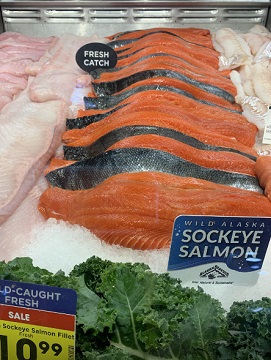
Statewide commercial salmon harvest tops 14M fish
Millions of wild salmon heading for their spawning grounds in Alaska are being greeted by commercial fishermen with drift gillnets and setnets, harvesting upwards of 14 million fish through Tuesday morning, including over four million in Prince William Sound. For the Copper River District itself over 601,000 salmon were delivered to processors and the state’s central region had an overall catch of over 11.6 million fish. Preliminary data compiled by the Alaska Department of Fish and Game put the catch through Tuesday at over 14 million fish harvested statewide, including 10.3 million sockeyes, 3.3 million chums, 331,000 pink, 46,000 Chinook, and 6,000 coho salmon. >click to read< 10:54
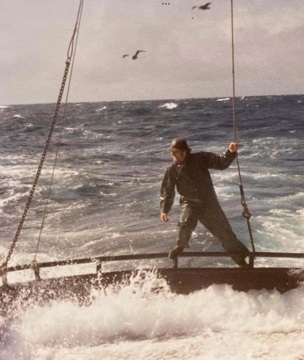
In memory of Edward “Fast Eddie” William Fee
Edward William Fee brought out the best in those that had the pleasure of knowing his vibrant soul. These words are not easy to put on paper in order to fully comprehend the man he was. Born in Ft. Bragg, California on February 1, 1953, he was ready to take on the world until the very last opportunity came his way. As a young man he found himself in the constant eye of adventures and friendships. His knowledge knew no bounds and his limits knew no end. Eddie always followed his heart and in 1971 landed a potential fishing life with cousins Gerald and Tommy Masolini in Cordova, Alaska. There he fished with the best of them, the heroes of the fleets, from the Bering Sea to the border of Mexico. >click to read< 09:56
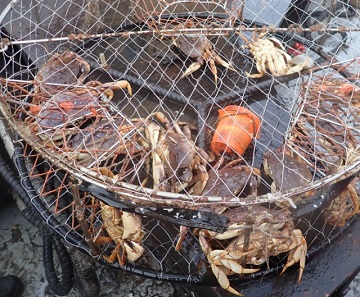
B.C. man fined $160K for breaking Canadian, U.S. fishing laws
A B.C. man who pleaded guilty to four counts related to breaching Canadian and U.S. fishing laws has been given a three-year deadline to pay $160,000 worth of fines. Judge Kimberly Arthur-Leung considered Hoan Trung Do’s fishing activities in Boundary Bay between July 15, 2018 and Oct. 31, 2020 before determining he’d “knowingly broke the law for financial gain and to the detriment of the environment,” according to a recent provincial court decision. The ruling explains that Do has been fishing since 1999 and therefore knew the regulations surrounding Boundary Bay, which is described as “a pocket of the Salish Sea bordering the joint Canadian and (U.S.) waters.” >click to read< 11:27
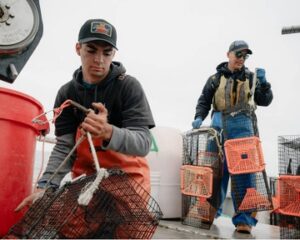
California’s Salmon Fishers Are Facing a Summer Without Salmon. Will They Get Federal Help?
On another day, Matt Juanes would have set out on the water long before sunrise. Juanes, an experienced salmon and crab fisherman who has worked out of Fisherman’s Wharf for over five years, is no stranger to the trade. Today, though, he would be chasing an unfamiliar catch for the first time: coonstripe shrimp. Juanes is one of hundreds of commercial fishers who dock along the Golden State coast and who would normally be out hunting mighty chinook or “king” salmon — the mainstay of California’s commercial salmon fishing industry. The first months of summer are typically a premier time for both salmon and salmon fishers. But this summer, California’s salmon fishing season is completely shut down for the first time in over a decade. Photos, >click to read< 09:40
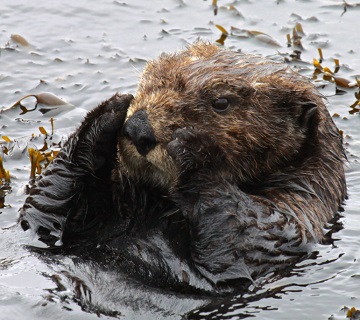
(Un)welcoming Waters: Sea otters poised for comeback to Marin and Sonoma counties
On a daily basis, sea otters consume 25% of their body weight in food. Hence, there are very real concerns by the fishermen who make their living hauling in Dungeness crabs and the other invertebrates that sea otters devour. Reestablishing sea otters could disrupt an entire industry right here in Marin and Sonoma counties and beyond. Dick Ogg, a Sonoma County resident for 62 years, has been fishing most of his life. For the last 25 years, he’s been a commercial fisherman, with his income relying heavily on crabbing. “They’re cute, the sea otters, but they are going to eat whatever they can get their hands on. Everybody knows bringing them back is going to affect the crab industry.” >click to read< 10:24
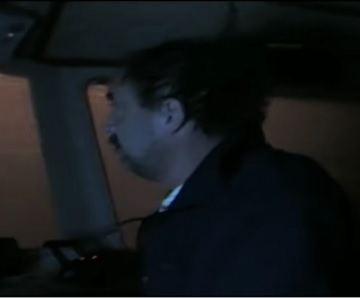
Deadliest Catch’s F/V Aleutian Ballad comeback from 60ft ‘rogue wave’ capsize
The Aleutian Ballad is one of Deadliest Catch’s most memorable fishing vessels. Deadliest Catch’s F/V Aleutian Ballad was captained by Jerry ‘Corky’ Tilley. The Washington born captain was in charge of the boat when it was hit by a wave the size of a five-story building in season 2. The 107-foot-long welded steel crabber was capsized by the “rogue wave,” and exited the Discovery series. Speaking on Deadliest Catch, Captain Jerry said that the weather conditions were “unbelievable.” At 3 am, the Captain had to navigate the 100ft tall boat through 40ft seas and 60-mph winds before it was hit by a 60ft wave. During Deadliest Catch season 2, fans saw the Aleutian Ballad with a dead engine after being hit by a “rogue wave.” Video, >click to read< 06:49

































